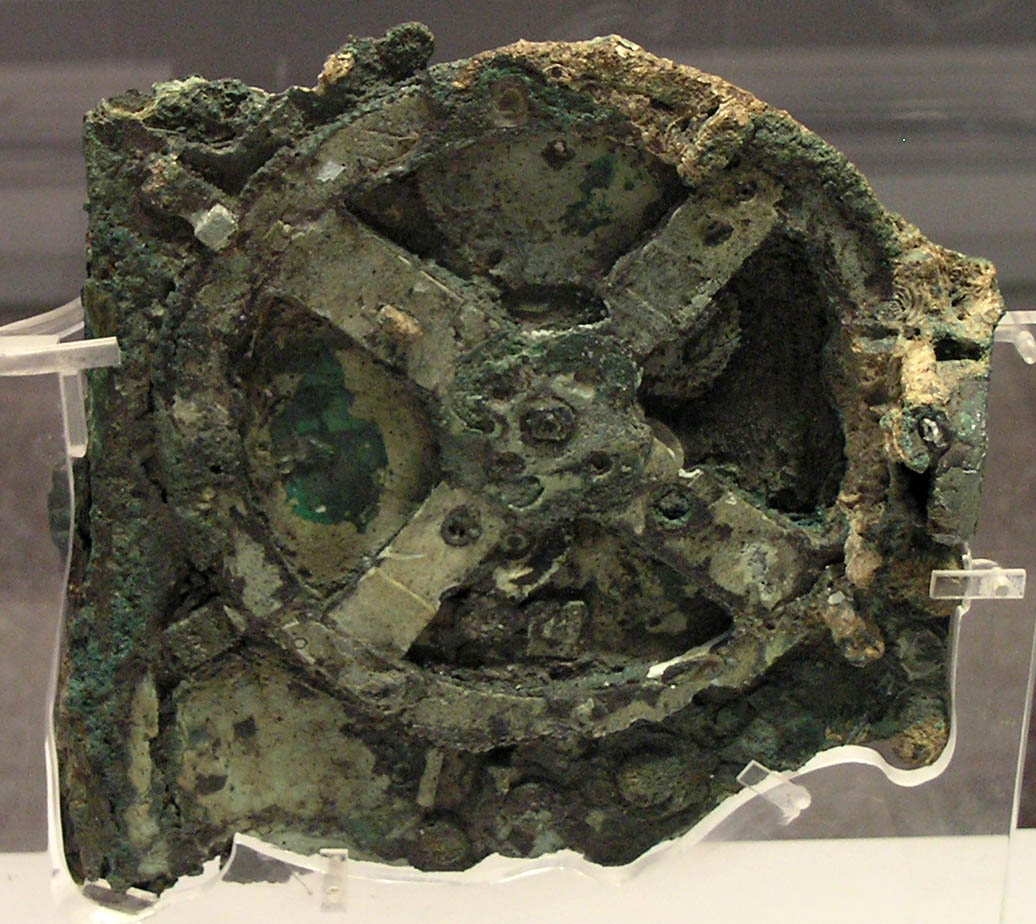From “Fragmentary Knowledge,” John Seabrook’s 2008 New Yorker article about the Antikythera Mechanism, perhaps humankind’s first computer:
“Looking back over the first 50 years of research on the Mechanism, one is struck by the reluctance of modern investigators to credit the ancients with technological skill. The Greeks are thought to have possessed crude wooden gears, which were used to lift heavy building materials, haul up water, and hoist anchors, but historians do not generally credit them with possessing scientifically precise gears—gears cut from metal and arranged into complex ‘gear trains’ capable of carrying motion from one driveshaft to another. Paul Keyser, a software developer at IBM and the author of Greek Science of the Hellenistic Era, told me recently, ‘Those scholars who study the history of science tend to focus on science beginning with Copernicus and Galileo and Harvey, and often go so far as to assert that no such thing existed before.’ It’s almost as if we wished to reserve advanced technological accomplishment exclusively for ourselves. Our civilization, while too late to make the fundamental discoveries that the Greeks made in the sciences—Euclidean geometry, trigonometry, and the law of the lever, to name a few—has excelled at using those discoveries to make machines. These are the product and proof of our unique genius, and we’re reluctant to share our glory with previous civilizations.
In fact, there is evidence that earlier civilizations were much more technically adept than we imagine they were. As Peter James and Nick Thorpe point out in Ancient Inventions, published in 1994, some ancient civilizations were aware of natural electric phenomena and the invisible powers of magnetism (though neither concept was understood). The Greeks had a tradition of great inventors, beginning with Archimedes of Syracuse (ca. 287–212 BC), who, in addition to his famous planetarium, is believed to have invented a terrible clawed device made up of large hooks, submerged in the sea, and attached by a cable to a terrestrial hoist; the device was capable of lifting the bow of a fully loaded warship into the air and smashing it down on the water—the Greeks reportedly used the weapon during the Roman siege of Syracuse around 212 BC. Philon of Byzantium (who lived around 200 BC) made a spring-driven catapult. Heron of Alexandria (who lived around the first century AD) was the most ingenious inventor of all. He described the basic principles of steam power and is said to have invented a steam-powered device in which escaping steam caused a sphere with two nozzles to rotate. He also made a mechanical slot machine, a water-powered organ, and machinery for temples and theaters, including automatic swinging doors. He is perhaps best remembered for his automatons—simulations of animals and men, cleverly engineered to sing, blow trumpets, and dance, among other lifelike actions.” (Thanks Electric Typewriter.)
••••••••••
Some of Heron’s automata:
Tags: John Seabrook, Nick Thorpe, Paul Keyser, Peter James

